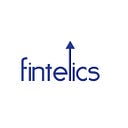Member-only story
Fake Product Identification Using Blockchain Technology
100% extra virgin olive oil. Conflict-free minerals. Original pure honey. Fair trade coffee.
The majority of us are well versed with these terms, and every day we place our trust in brands and our favorite manufacturers; but how do we know what’s mentioned on the labels is real?
The fact is that the majority of these products are mislabelled or have misleading labels. Did you know that more organic food is sold than manufactured or produced? More than 50% of all olive oil on US store shelves has mislabelled packaging. Specialty terms can help justify premium costing, which ultimately means that mislabelled products can increase profits.
A new product or technology always comes with risk factors such as forging, counterfeiting, and duplication. This can negatively influence a company’s name, overall margins, and customer health. There are a lot of products that exist in the supply chain with misleading claims; these have incurred great losses to original product manufacturers.
Between 2016 and 2018 alone, for example, over 385,000 pairs of fake Nike Air Jordan sneakers were shipped to the U.S. from overseas manufacturers, thereby leading to $70 million in lost revenues for Nike.
Frustrated with counterfeiting or duplication, consumers and organizations are becoming more tech-savvy. They are now progressively demanding more transparency around the products that they buy, be it related to sustainability, authenticity, or ethical sourcing. Now, to find out if the products are authentic, businesses are turning to blockchain technology. Studies suggest that businesses could reduce the sale of counterfeit products by 60 to 80% by leveraging blockchain and IoT technologies. Let’s see how manufacturers can reduce the number of fraudulent sales.
Blockchain-based QR: The End of Product Forging
The global counterfeit products market is valued at mega-billion dollars and is growing at an unprecedented rate. A major part of this number, to the tune of $100 billion per year, is fake luxury goods — including the renowned brands (Christian Dior…
